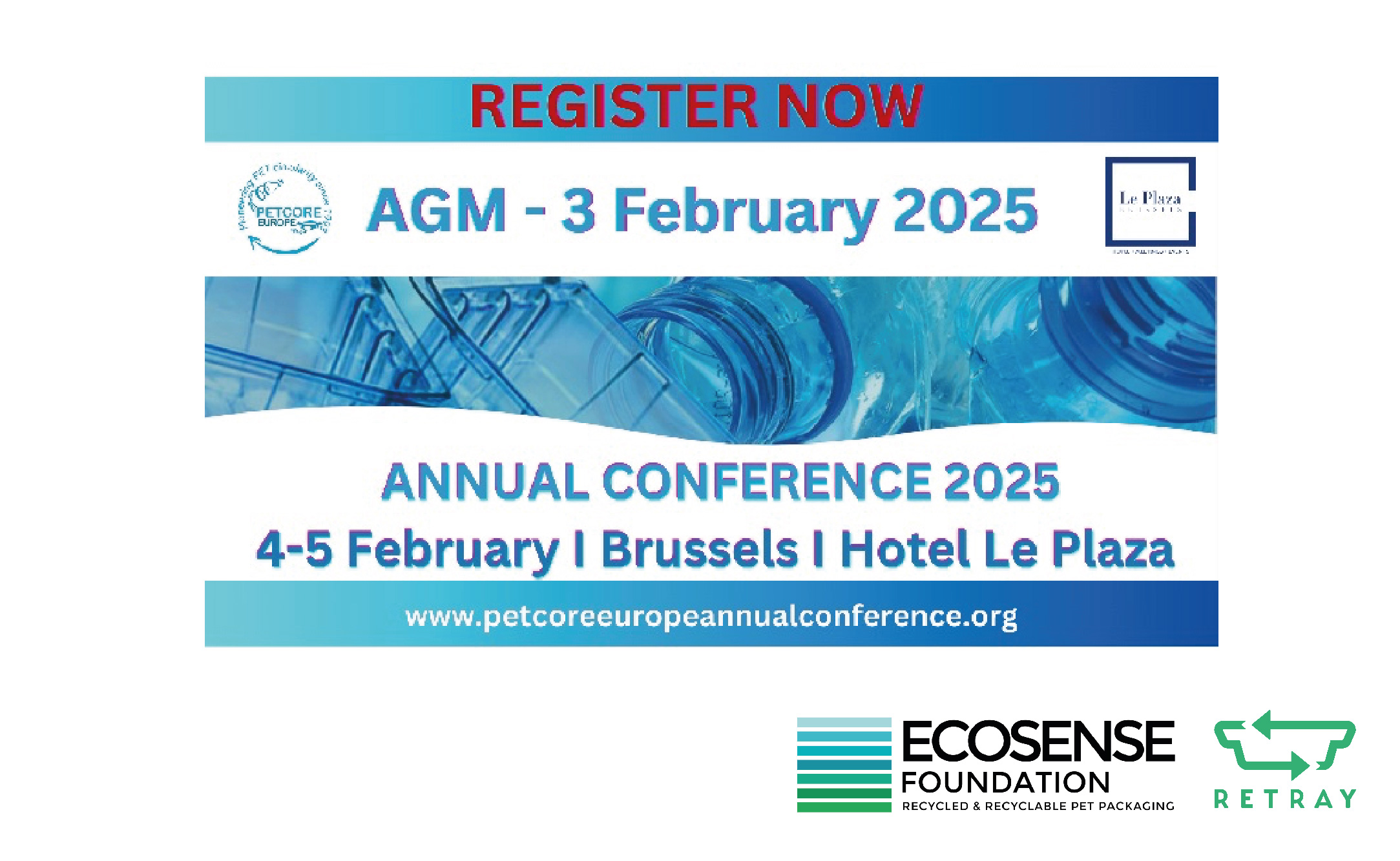ECOSENSE FOUNDATION AT PETCORE EUROPE’S ANNUAL MEETING. Brussels, February 4 and 5

As part of the collaboration agreement between PETCORE Europe and the ECOSENSE FOUNDATION, on February 5, the Foundation will deliver a joint presentation alongside FINBOOT, a Blockchain solutions provider, and KPFilms, a PET sheet and packaging manufacturer. The presentation is titled «From Bytes to Bites: Blockchain Traceability for Sustainable Food Packaging Claims».
Our representative will highlight how companies are taking significant steps to integrate circularity into their operations. These organizations have demonstrated a strong commitment to sustainable practices by adhering to rigorous standards of traceability, environmental care, and legal compliance through three key aspects:
Traceability Requirements: Ensuring that both input and output materials in their processes are carefully tracked. This level of control fosters accountability throughout the supply chain.
Commitment to Quality and Environmental Standards: Maintaining practices that align with strict sustainability and quality standards, ensuring minimal environmental impact while delivering high-quality products.
Operational and Legal Requirements: Ensuring their operations comply with all regulatory frameworks, emphasizing not only environmental goals but also legal integrity.
Three fundamental drivers underpin this commitment:
1.- Ensuring Transparency in Data and Processes: Companies are investing in resources, systems, and technologies that provide full visibility of their operations. This is critical in today’s environment, where both consumers and regulators demand verifiable data.
2.- Building Trust Across the Value Chain: Transparency fosters trust—not only from consumers but also from partners and stakeholders across the supply chain. Trust is the foundation of collaboration, which is essential to achieving circular economy objectives.
3.- Enhancing Compliance with EU Regulations: With regulations such as the Digital Product Passport and Ecodesign initiatives, companies must ensure they meet strict standards. By integrating transparency and traceability into their operations, these businesses not only comply but also gain a competitive advantage.
Lastly, we will discuss how the Foundation is incorporating technology into this equation. Finboot’s MARCO Track & Trace platform leverages blockchain to revolutionize the auditing process. Certification requires a thorough analysis of material sourcing, recycling processes, and sustainability practices. Blockchain ensures that every step of this process is documented in an unalterable and transparent manner, providing a reliable record of information. This includes certifications achieved, creating a system that auditing and accreditation bodies can fully trust. By combining rigorous certification standards with advanced digital tools, we are setting a new benchmark for transparency and accountability in the circular economy and the final development of the Digital Product Passport.
By prioritizing these drivers, companies position themselves as leaders in sustainability, demonstrating how transparency, trust, and compliance work hand-in-hand to achieve circularity and meet the demands of both consumers and legislators.
The ECOSENSE FOUNDATION’s certification schemes go beyond simple compliance. Our schemes have been designed to address the key needs of today’s industry and the challenges of the future.
